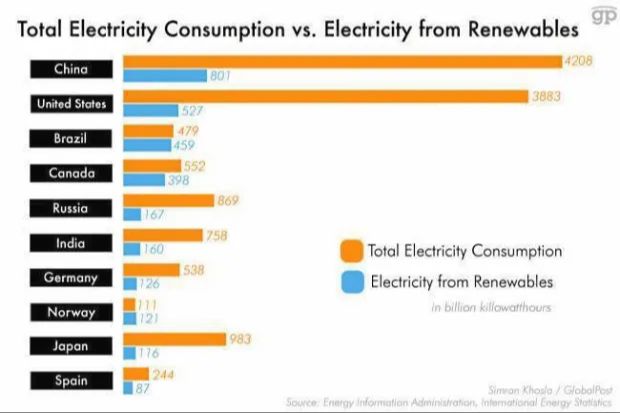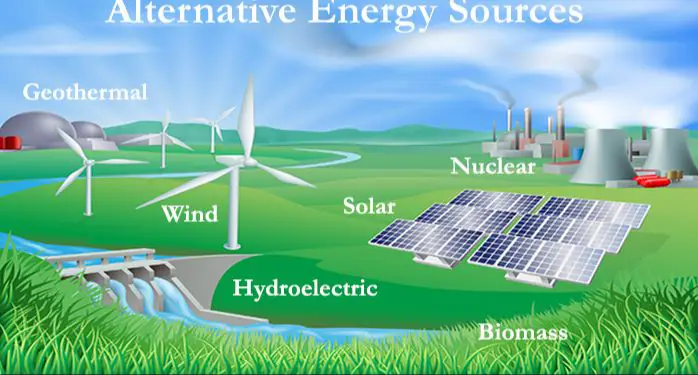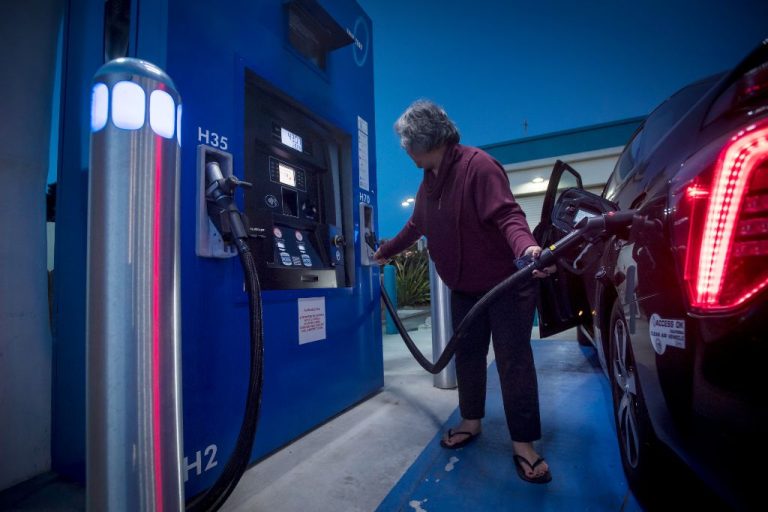Which Engineering Field Is Best For Renewable Energy?

Renewable energy has become increasingly important as we work to combat climate change and reduce our reliance on fossil fuels. Renewable energy comes from natural sources that are constantly replenished, such as sunlight, wind, water, plants, and geothermal heat. The development and application of renewable energy requires expertise across several engineering disciplines. Engineers design, build, and maintain renewable energy systems like solar panels, wind turbines, hydroelectric dams, and geothermal power plants. They also work to improve the efficiency, cost-effectiveness, and reliability of renewable technologies.
The engineering fields most involved with renewable energy include mechanical, electrical, chemical, civil, environmental, nuclear, and industrial engineering. Each field contributes unique skills and knowledge to help advance renewable energy. Mechanical engineers design wind turbines, solar tracking systems, hydroelectric dams, and geothermal power plants. Electrical engineers work on photovoltaic systems, smart grids, and electrical components for renewable energy systems. Chemical engineers develop biofuels and design processes to convert biomass into energy. Civil engineers plan and construct dams for hydroelectric power as well as wind and solar farms. Environmental engineers evaluate and mitigate the environmental impact of renewable energy projects. Nuclear engineers work to develop safer, more efficient nuclear power from renewable sources. Industrial engineers optimize the efficiency of renewable energy production and integration.
Mechanical Engineering
Mechanical engineers play a critical role in the design, testing, and manufacturing of renewable energy systems. Their expertise is essential for developing efficient and cost-effective technologies like wind turbines, solar panels, and geothermal power plants. According to How Mechanical Engineers Lead Advances in Renewable Energy, mechanical engineers can work on every stage of renewable energy from R&D to deployment. For example, they may design novel wind turbine blades or model the fluid dynamics of ocean currents for hydrokinetic power.
Mechanical engineers also optimize renewable technologies to improve efficiency and lower costs. As described in The Role of Mechanical Engineering in Renewable Energy Technologies, they develop advanced materials and manufacturing methods that increase solar cell efficiency. Their expertise in thermodynamics, structural analysis, and heat transfer is critical for technologies like concentrated solar plants. Overall, mechanical engineers play a vital role in designing, building, and testing renewable energy systems.
Electrical Engineering
Electrical engineering plays a key role in renewable energy, as electrical engineers design systems to harness, generate, store, and distribute renewable energy sources like solar, wind, and hydropower (https://energy5.com/the-role-of-electrical-engineering-in-the-exploration-of-renewable-resources). They utilize their expertise in power systems, transmission and distribution, smart grids, and electronics to develop new ways to integrate renewable energy into the existing infrastructure.
One of the primary responsibilities of electrical engineers in renewable energy is designing highly efficient devices like solar panels, wind turbines, and generators to maximize power output. They determine the optimal locations for renewable energy installations, taking into account factors like sunlight exposure for solar and wind patterns for turbines. Electrical engineers also develop control systems and power electronics to ensure renewable energy systems operate safely and reliably.
Another key task is designing systems to store the intermittent energy from renewable sources like solar and wind. Electrical engineers work on battery technologies and smart grid solutions to capture excess renewable electricity for later use when demand is high but renewable generation is low. They also focus on integrating renewable energy with existing power grids and improving transmission capacity to get the renewable power to end users.
Overall, the expertise of electrical engineers is essential for driving innovations in renewable power generation, integration, storage and management. Their role will continue growing in importance as reliance on sustainable energy increases globally.
Chemical Engineering
Chemical engineers can play a major role in renewable energy by developing new materials and processes for clean energy technology. This may include designing:
- More efficient solar cells using semiconductor materials like cadmium telluride or copper indium gallium selenide.
- Improved battery technologies like lithium-ion and flow batteries for energy storage.
- Biofuel production processes to generate renewable transportation fuels from biomass.
- Materials for fuel cells that electrochemically convert hydrogen and oxygen into water and electricity.
- Technologies to produce hydrogen via water electrolysis powered by renewable electricity.
- Catalysts to improve production pathways and reduce waste in renewable fuel manufacturing.
Chemical engineers optimize these processes and synthesize innovative materials that can capture, store, and utilize renewable energy more efficiently and effectively. Their expertise in thermodynamics, kinetics, fluid dynamics, and chemical reactions is critical for advancing clean energy technologies.
Civil Engineering
Civil engineers play a major role in designing and constructing renewable energy infrastructure like dams, wind farms, solar farms, geothermal plants, and more.The Role of Civil Engineering in Energy Infrastructure Development states that civil engineers contribute to the planning, design, construction, operation and maintenance of renewable energy facilities.
According to the U.S. Department of Energy, civil engineers are involved in activities like site selection, feasibility studies, permitting, procurement, construction management, inspection, commissioning, operation, and maintenance for renewable energy projects. They ensure renewable energy systems are designed and built to be efficient, safe, resilient and compliant with regulations.
Civil engineers may also conduct research and analysis on improving renewable energy infrastructure. For example, they may study ways to enhance the performance and lifespan of wind turbines or solar panels. With their broad skillset, civil engineers have many opportunities to advance renewable energy adoption.
Environmental Engineering
Environmental engineers focus on studying the environmental impact of renewable energy systems and developing sustainable energy solutions (Smith, 2022). According to an article on UC Riverside’s engineering blog, environmental engineers work on the frontlines to mainstream renewable energy sources like solar and wind power (UC Riverside, 2021).
On Reddit, one user commented that an environmental engineering degree can prepare someone to work directly with renewable energy sources, especially in regards to system sustainability and environmental impact (Reddit, 2019). An article from Utilities One highlights how environmental engineers leverage renewable technologies like solar, wind, hydro and geothermal to reduce fossil fuel dependence, while considering environmental factors (Utilities One, 2022).
Overall, environmental engineers are well-suited for renewable energy because their expertise involves evaluating sustainability, minimizing environmental impact, and developing holistic clean energy solutions.
Nuclear Engineering
Nuclear engineers design and maintain nuclear power stations and reactors (Nuclear Power in a Clean Energy System – Analysis). This involves managing nuclear reactions to convert nuclear energy into usable power. Nuclear power provides a stable, emissions-free source of energy that can complement intermittent renewable sources like solar and wind (The Integration of Nuclear Engineering with Renewable Energy Sources). While nuclear fuel itself is not renewable, a nuclear reactor can provide energy for years from a small amount of fuel. Nuclear engineers ensure safe operation, prevent accidents, and handle waste disposal. Major nuclear power stations in India include Tarapur, Kaiga, Rajasthan Atomic Power Station, Narora Atomic Power Station, and Kalpakkam.
Industrial Engineering
Industrial engineers focus on improving efficiency, productivity, reliability, and quality in manufacturing and production systems. They are well-suited for optimizing renewable energy operations and integration. According to the U.S. Department of Energy, “Industrial engineers find ways to eliminate wastefulness in the wind turbine production processes. They devise efficient ways to use workers, machines and materials to make manufacturing as productive as possible.” Career Map: Industrial Engineer.
The Interstate Renewable Energy Council states that “As part of the clean energy economy, Industrial Engineers study solar production processes carefully and devise ways to maximize their efficiency.” Industrial Engineer.
A 2018 study explains “An Industrial Engineer has unique planning and managing abilities to optimize and manage the resources used in energy projects. This study shows the application of the IE [Industrial Engineering] body of knowledge in planning and managing energy projects.” The Role of the Industrial Engineer in an Energy System Development.
Choosing a Field
When choosing which engineering field to pursue for a career in renewable energy, it’s important to consider the career prospects, average salaries, and your personal interests and strengths.
Mechanical engineering offers strong career prospects in wind and solar energy. The average starting salary for mechanical engineers is $61,800 and the overall job outlook is strong with a 5% growth rate (source). This field is a good fit if you enjoy designing, testing, and improving mechanical systems.
Electrical engineering also plays a major role in renewable energy, especially for solar PV systems and smart grids. Starting salaries average around $66,000 and job growth is faster than average at 7% (source). This field suits those interested in electronics, power systems, and efficiency optimization.
Chemical engineers develop and improve technologies like biofuels and fuel cells. Salaries start around $68,000 on average and job growth is at 8% (source). This career path fits those who enjoy chemistry, thermodynamics, and process optimization.
Overall, each engineering field offers strong prospects in renewable energy. Focus on your personal strengths and interests to choose the right path for you.
Conclusion
All engineering fields play an important role in developing renewable energy solutions. However, some are more directly involved than others. Electrical engineering is key for designing and optimizing renewable energy systems like solar panels, wind turbines, and smart grids. Mechanical engineering develops renewable power technology like turbines, generators, and engines. Chemical engineering works on biofuels and hydrogen production. Civil engineering designs and builds renewable energy infrastructure. Environmental engineering applies sustainability principles across projects.
Overall, electrical engineering is likely the best field for renewable energy because it focuses directly on solar, wind, geothermal, and other alternative power generation and transmission. Mechanical engineering also plays a critical role. chemical engineering will be increasingly important for next-generation biofuels. An electrical engineering background with a focus on power systems provides the optimal foundation for working in renewable energy.







